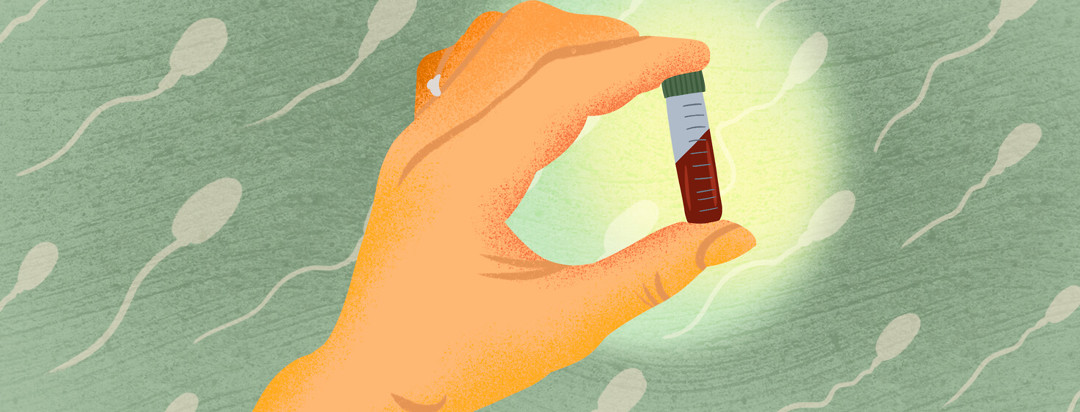What's The Deal With Fertility Testing And CF?
As people with CF continue to live longer, healthier lives, couples are in the unique position to decide to become parents or not. Growing a family is such an exciting and anxious time for many reasons. There is a lot to celebrate! But firstly, you have to manage to become pregnant and sometimes it isn’t so simple. Whether CF is in the picture or not, waiting to conceive can be an emotionally draining process filled with big emotions--isolation, disappointment, worry, jealousy, anger, shame, etc.
Infertility in cystic fibrosis
Men and infertility
CF can ultimately affect the reproductive systems of both males and females. The bulk of the available research is concentrated on why male infertility happens in cystic fibrosis. Most males with CF are infertile due to a missing vas deferens, the tube that carries sperm through the male reproductive tract.1CFTR also regulates normal sperm function and can cause difficulty during conception when egg and sperm meet.1 Because men with CF make sperm, many couples use assisted reproductive technology (ART) to become parents using In vitro Fertilization (IVF).1
Women and infertility
The rates of infertility are higher in women with cystic fibrosis when compared to the general population.2 Thirty-five percent of women with CF experience infertility or sub-fertility (delay in conceiving) in comparison to 14% of the general population.2 However, the explanation as to why is a bit more unclear.
Often, women with CF can experience delayed puberty, irregular menstrual cycles, and anovulation due to low body mass or malabsorption.2 In addition, thick cervical mucus which plays a role in the transport of the sperm before conception can cause issues as well. ART can also be used in these cases to induce ovulation or bypass thick cervical mucus.2
Process of fertility testing
Infertility is such a delicate, often taboo, subject. It is hard to speak openly about something that can be so disappointing and intimate. Reaching out to start testing can also be a bit intimidating at first, but a necessary step before any treatment.
Most OBGYNs recommending having unprotected sex for one year before seeking help if they are younger than 35.3 If the couple is older than 35, the recommendation is to seek help after 6 months of unprotected sex without conceiving.3 CF may be a factor that warrants testing sooner than the current recommendation.
The goal of fertility testing is to determine if:
- Are you ovulating?
- Are your uterus and fallopian tubes normal?
- Are the sperm normal in number and function?
Once the key questions are answered through various tests and exams, you will be guided through the options that can help you achieve a healthy pregnancy.
Our experience with fertility testing
In our case, fertility testing was rather straightforward. I had blood work that looked at various hormone levels, blood count, and thyroid function. Next, an lower abdominal ultrasound was done to make sure my reproductive tract was anatomically normal and healthy. Lastly, an x-ray procedure called a hysterosalpingogram or HSG was performed in radiology to determine if my fallopian tubes were open and free of any blockages. The HSG procedure is a tad uncomfortable but very quick and minor in comparison to all I have experienced with CF. In addition, my husband had a semen analysis done. After the testing, we discussed a treatment plan and our next steps with the doctor.
There are so many treatments and routes to achieve a healthy pregnancy, and I am relieved we are slowly making our way through the process. If you are in the same situation, do not be too afraid to speak up and find the support--both medically and emotionally--you need. Becoming parents with CF isn't always an easy road, but it’s so worth it!
Have you experienced infertility due to cystic fibrosis? Have you undergone fertility testing?

Join the conversation